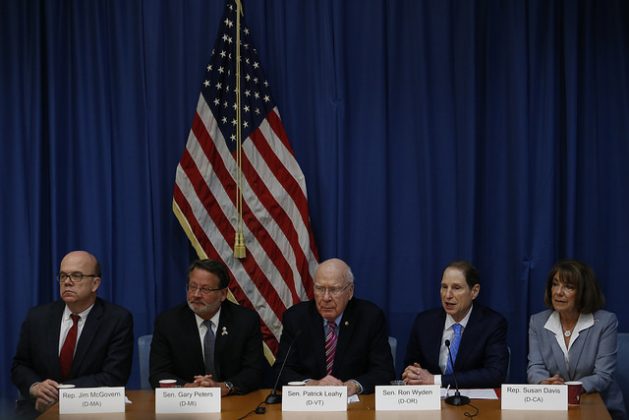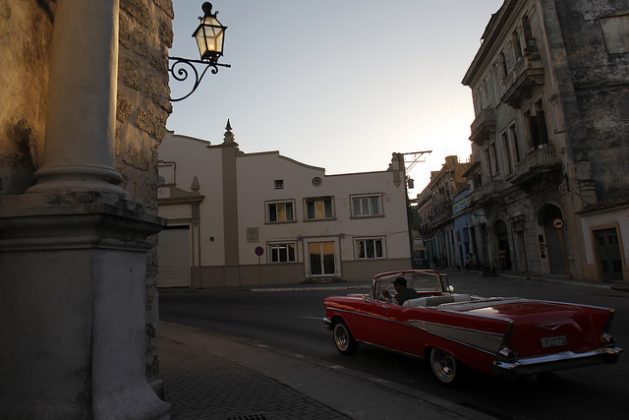Castro’s Successor to Inherit Long-standing Conflict Between Cuba and the United States

Since the 1960s, Cuba's nationalist stance has drawn on the animosity with the U.S., and the likely successors of the country's current leaders, most of whom were born around the time of the 1959 revolution or afterwards, were educated in a culture of "anti-imperialist resistance".
According to the official figures on the outcome of the Mar. 11 general elections, the average age of the new members of parliament fell to 49 years, compared to 57 years for the outgoing lawmakers.
The single-chamber National Assembly of People's Power elects from among its members the 31 members of the Council of State, which according to the constitution is the highest representative of the Cuban state, whose president is the head of state and government.
The most likely candidate to succeed Castro is the current first vice president, Miguel Diaz-Canel, 57, although there is no official confirmation.
The return to the tension that existed before the détente agreed by Raúl Castro, 86, and Barack Obama (2009-2017) on Dec. 17, 2014, which led to the restoration of diplomatic relations between Washington and Havana, brings additional difficulties to the weakened Cuban economy and puts a brake on the changes required by its socialist model of development.
"Unfortunately, reform in Cuba becomes more difficult when the United States is more aggressive and negative," said John McAuliff, executive director of the Fund for Reconciliation and Development, a U.S.-based non-governmental organisation that supports efforts for reconciliation with Cuba.
In his opinion, a new generation of leaders "opens a door, but it does not guarantee" how quickly change will come. "If the new leaders expand opportunities for the self-employed and small businesses, especially in tourism and other professional sectors, the economy will improve," he told IPS from the U.S. by e-mail.
In the same vein, he said that "if the public dialogue incorporates all the sectors that are not explicitly counterrevolutionary inside and outside the country, politics will expand, evolve and be strengthened along with Cuba's history and culture."
Trump's adverse policy towards Cuba since his arrival at the White House in January 2017 has kept bilateral ties at their lowest level, with a skeleton staff at the two embassies, which are unable to carry out their consular and business duties, while it has restricted travel by U.S. citizens to the Caribbean island nation, among other limitations.

Washington justifies the reduction of personnel and the recommendation to U.S. citizens to refrain from traveling to Cuba by citing mysterious attacks – apparently linked to high-pitched sounds - that affected the health of U.S. and Canadian diplomats in Cuba between November 2016 and August 2017.
Havana has denied any involvement in the incidents.
In a Dec. 22 speech in the Cuban parliament, Castro accused the United States of fabricating "pretexts" to justify the return to "failed and universally rejected policies."
U.S. lawmakers who visited Cuba between Feb. 19-21, led by the Democratic Senator for the state of Vermont, Patrick Leahy, said the measures ordered by Trump were a serious mistake, harmful to the governments and people of both nations.
In defiance of the travel advisory against Cuba, the legislators flew here with their wives, and in the case of Leahy, with his 13-year-old granddaughter. The group met with Castro and other local authorities.
"Cuba is changing. Soon you will elect a new president and likely experience a generation shift in leadership, and regrettably at this historic moment in Cuban history, the U.S. engagement is limited," Jim Mcgovern, a Democrat member of the U.S. House of Representatives, representing Massachusetts, lamented in a press conference.
In turn, Senator Ron Wyden, of Oregon, reported that there is a legislative proposal against the embargo brought forward by him and other senators, which has strong bipartisan support. "After the November elections, we will have more support to end the embargo," he said.
Meanwhile, migrants are among the biggest losers in the embassy conflict, although the Cuban embassy in Washington, with 17 fewer staff members, says it has maintained its usual services, including consular services for Cubans and Americans.

But the reduction of personnel in the U.S. embassy in Havana forces Cuban immigrants to travel to Colombia to process their visas, which will prevent Washington in 2018 from meeting its commitment to issue 20,000 visas a year, as established in the migration agreements of 1994 and 1995.
The main recipient of Cuban emigration is the United States, where over two million people of Cuban origin reside, of whom almost 1.2 million were born in Cuba, according to official data from the U.S. A good part of that population has not cut its umbilical cord with Cuba.
Lillian Manzor, interim chair of the Department of Modern Languages and Literatures at the University of Miami, told IPS by e-mail that currently, most Cubans in the U.S. support rapprochement between the two countries, while U.S. foreign policy is going in the opposite direction.
"Reconciliation and rapprochement occur on a human level. States can facilitate it, but they can neither impose it nor stop it," she said, recalling that "even during the most tense moments of relations between Cuba and the United States, we Cubans have remained in touch with our families, friends and collaborators."
In that sense, Manzor, a Cuban resident in the United States, does not underestimate the strength that this majority sector of Cuban migrants can represent in order to stop the setback imposed by the Trump administration on the normalisation of bilateral ties between Washington and Havana, restored in July 2015.
"That's the big challenge. How can this need to stay connected with our family and friends be turned into an electoral force. In the meantime, we must continue with what we have always done: cope with adverse policies and fight for our rights as American citizens," she said.
The academic also said that among immigrants favourable to "closer political and human relations" there are many who hope that "the new president of Cuba will continue with the necessary migratory changes to facilitate travel for Cubans residing abroad."
Whoever it will be, Castro's successor has the stage set to move in that direction. On Jan. 1, four Cuban government measures came into force, aimed at relaxing the country's migration policy and improving its relation with the Cuban exile community. The provisions followed the new Migration Law in force since 2013.
"The Cuban passport is still one of the most expensive in the world especially considering the payment that must be made every two years to maintain the validity of the passport," said Manzor. The document, valid for six years, costs 400 dollars plus 200 dollars for the biannual extension.
© Inter Press Service (2018) — All Rights ReservedOriginal source: Inter Press Service
 Global Issues
Global Issues